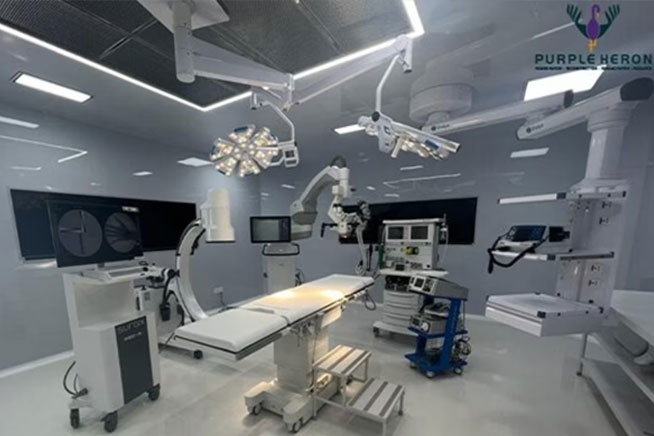
Surgical Oncology is a specialized field of surgery that focuses on the diagnosis, treatment, and management of cancer through surgical procedures. Surgical oncologists are skilled surgeons who work in collaboration with medical oncologists, radiation oncologists, and other healthcare professionals to provide comprehensive cancer care.
Key Aspects of Surgical Oncology:
Diagnosis:
- Surgical oncologists play a crucial role in the initial diagnosis of cancer. They often perform biopsies to obtain tissue samples for laboratory analysis, helping to determine the type and extent of cancer.
Treatment Planning:
- Based on the diagnosis, surgical oncologists work with a multidisciplinary team to develop a personalized treatment plan. Surgery may be the primary treatment or part of a multimodal approach that includes chemotherapy, radiation therapy, and immunotherapy.
Surgical Procedures:
- Surgical oncologists are trained in a variety of surgical techniques to remove tumors and cancerous tissues. Common procedures include tumor resections, lymph node dissections, and reconstructive surgeries.
Minimally Invasive Surgery:
- Advancements in technology have led to the increased use of minimally invasive surgical techniques, such as laparoscopy and robotic-assisted surgery. These approaches often result in smaller incisions, reduced pain, and faster recovery for patients.
Collaboration with Other Specialists:
- Surgical oncologists collaborate closely with medical oncologists, radiation oncologists, pathologists, radiologists, and other healthcare professionals. This multidisciplinary approach ensures comprehensive and coordinated care for cancer patients.
Postoperative Care:
- Following surgery, surgical oncologists monitor patients during the recovery period. They may also coordinate postoperative treatments, such as adjuvant therapies, to enhance the overall effectiveness of cancer treatment.
Research and Advancements:
- Surgical oncologists actively engage in research to explore new treatment modalities, surgical techniques, and technologies. Staying abreast of advancements in the field allows them to offer the latest and most effective treatments to their patients.
Patient Education:
- Surgical oncologists play a crucial role in educating patients about their condition, treatment options, and potential outcomes. Informed patients are better equipped to actively participate in their care decisions.
Conditions Treated by Surgical Oncologists:
- Breast cancer
- Colorectal cancer
- Lung cancer
- Prostate cancer
- Gastrointestinal cancers
- Gynecological cancers
- Head and neck cancers
- Skin cancers
- Sarcomas
- And more
Conclusion:
Surgical Oncology is an integral component of cancer care, offering patients a chance for cure, symptom relief, or improved quality of life. Through advancements in surgical techniques and a comprehensive, multidisciplinary approach, surgical oncologists contribute significantly to the ever-evolving field of cancer treatment.

